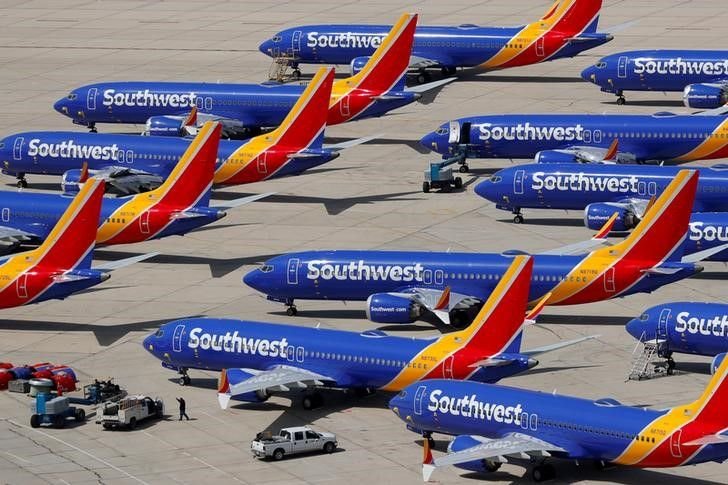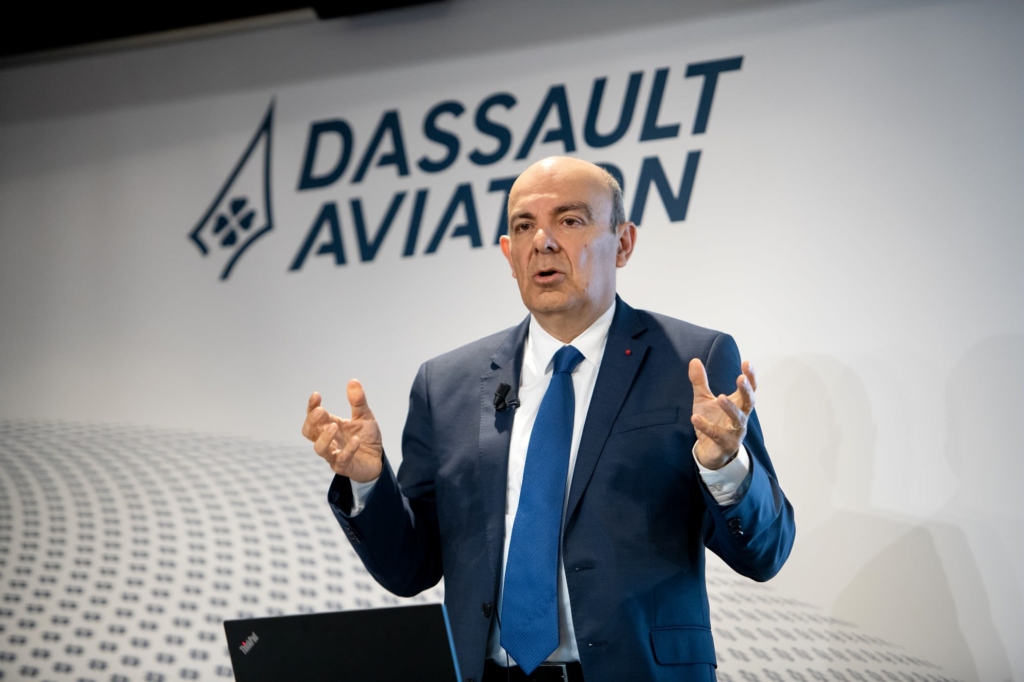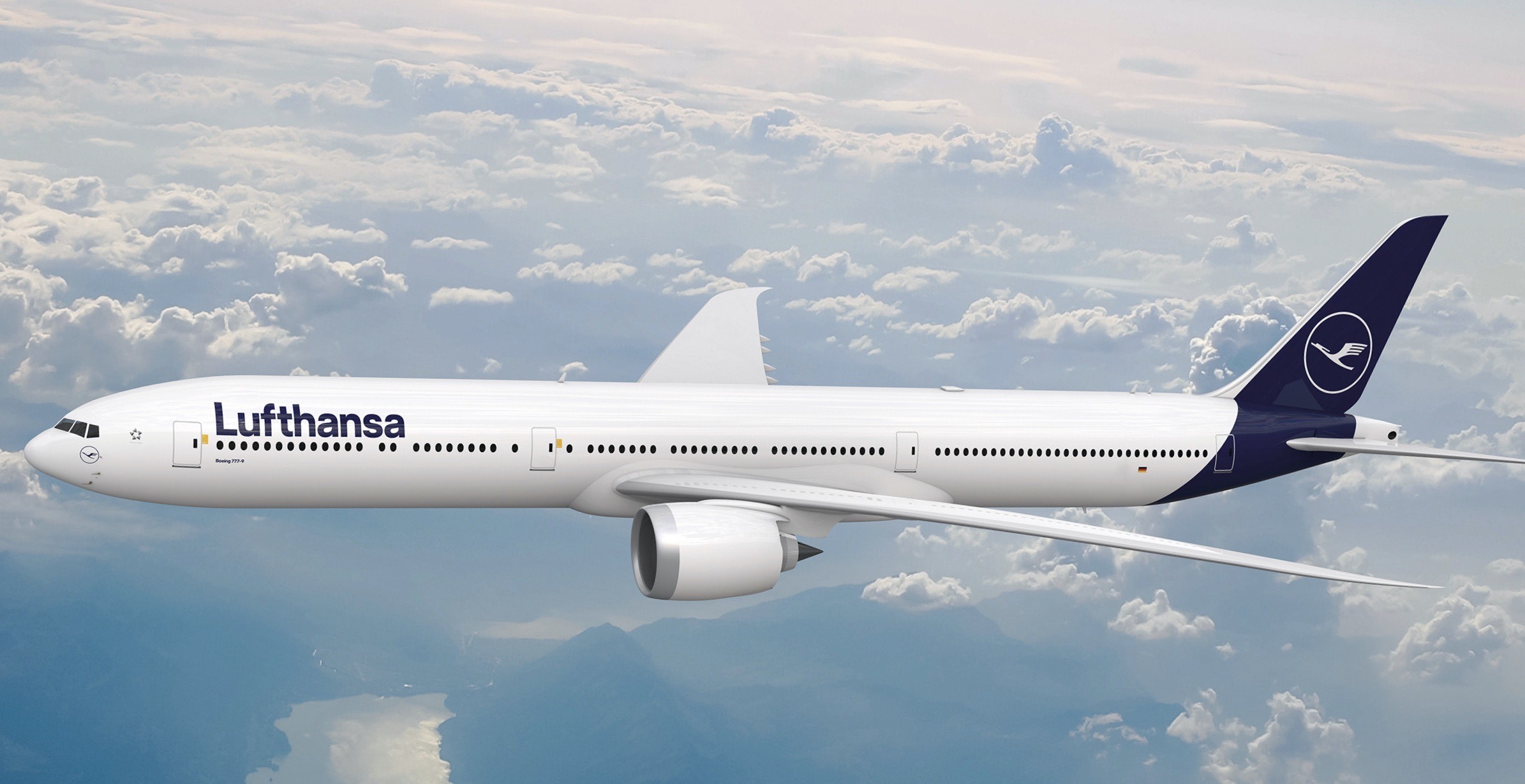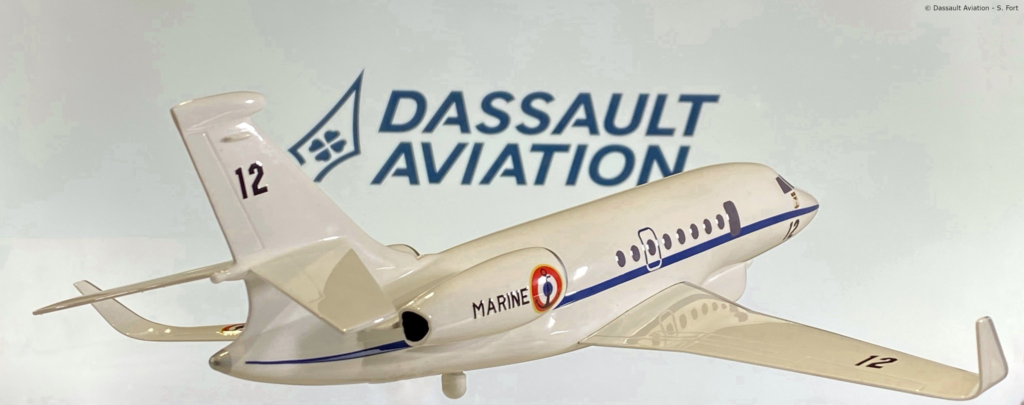
Tag: Audit

Lufthansa Supervisory Board Nominates Britta Seeger, Extends Detlef Kayser
Stephan Sturm will resign from the Supervisory Board of Deutsche Lufthansa AG (XETRA: LHA.DE), which will go into effect after the Annual General Meeting on May 4, 2021. The Chairman of the Executive Board of Fresenius has been a member of the Lufthansa Supervisory Board since April 2015 and has chaired the Audit Committee since January 2018.
The Supervisory Board Nomination Committee has proposed that Britta Seeger fill the vacancy. The 51-year-old business economist has been a member of the Board of Management of Daimler AG (XETRA: DAI.DE) since 2017 and is responsible for Mercedes-Benz Cars Sales. The Bonn-born manager will be nominated for election at the Annual General Meeting on May 4.
The responsibility as Chairman of the Audit Committee, which is currently held by Stephan Sturm, will be transferred to Harald Krüger at the Annual General Meeting, according to the will of the Supervisory Board.

At a meeting today, the Supervisory Board also decided to extend Detlef Kayser’s (55) contract ahead of schedule for three more years until December 31, 2024.
Dr. Detlef Kayser has been a member of the Executive Board of Deutsche Lufthansa AG since January 1, 2019. As “Chief Operations Officer” he is responsible for the operational processes and fleet and infrastructure management of the Lufthansa Group along with the Group-wide “ReNew” restructuring program.
FORT WORTH, Texas — American Airlines Group Inc. (NASDAQ: AAL) today announced the election of Adriane M. Brown, 62, to its board of directors. Brown will also serve on the company’s Audit and Corporate Governance and Public Responsibility committees.
Brown currently serves as managing partner at Seattle-based venture capital firm Flying Fish Partners. She also sits on the boards of Axon Enterprise, Inc., eBay Inc. and the Washington Research Foundation/WRF Capital.
Brown has held a number of senior leadership positions during her career, including president and chief operating officer at Intellectual Ventures Management, LLC, president and CEO of Transportation Systems and vice president and GM of two aerospace divisions at Honeywell International Inc. Brown launched her career at Corning Incorporated and rose to hold several senior roles. She previously served on the boards of The Raytheon Company, Allergan plc and Harman International Industries, Incorporated.
She holds a Bachelor of Science in environmental health from Old Dominion University and a Master of Science in management from the Massachusetts Institute of Technology.
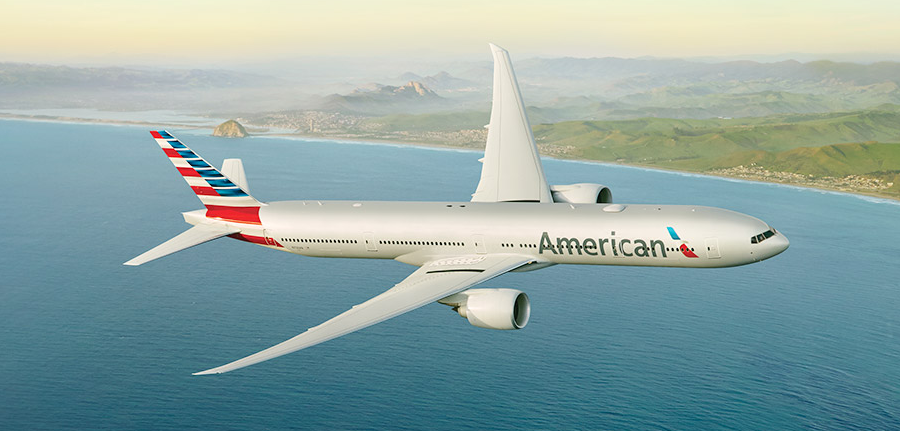
Deutsche Lufthansa AG has been informed by the Economic Stabilization Fund (WSF) of the Federal Republic of Germany that the WSF has approved the stabilization package for the company. The Executive Board also supports the package.
The package provides for stabilization measures and loans of up to EUR 9 billion.
The WSF will make silent participations of up to 5.7 billion euros in total in the assets of Deutsche Lufthansa AG. Of this amount, approximately EUR 4.7 billion is classified as equity in accordance with the provisions of the German Commercial Code (HGB) and IFRS. In this amount, the silent participation is unlimited in time and can be terminated by the company on a quarterly basis in whole or in part. In accordance with the agreed concept, the remuneration on the silent participations is 4% for the years 2020 and 2021, and rises in the following years to 9.5% in 2027.

Furthermore, the WSF will subscribe to shares by way of a capital increase in order to build up a 20% stake in the share capital of Deutsche Lufthansa AG. The subscription price will be 2.56 Euro per share, so that the cash contribution will amount to about 300 million Euro. The WSF may also increase its stake to 25% plus one share in the event of a takeover of the company.
In addition, in the event of non-payment of remuneration by the Company, a further portion of the silent participation is to be convertible into a further shareholding of 5% of the share capital at the earliest from 2024 and 2026 respectively. The second conversion option, however, only applies to the extent that the WSF has not previously increased its shareholding in connection with the above-mentioned takeover case. Conversion should also be possible for dilution protection. Subject to the full repayment of the silent participations by the company and a minimum sale price of EUR 2.56 per share plus an annual interest of 12%, the WSF undertakes, however, to sell its shareholding in full at the market price by 31 December 2023.
Finally, the stabilization measures are supplemented by a syndicated credit facility of up to EUR 3 billion with the participation of KfW and private banks with a term of three years. This facility is still subject to the approval of relevant bodies.

The expected conditions relate in particular to the waiver of future dividend payments and restrictions on management remuneration. In addition, two seats on the Supervisory Board are to be filled in agreement with the German government, one of which is to become a member of the Audit Committee. Except in the event of a takeover, the WSF undertakes not to exercise its voting rights at the Annual General Meeting in connection with the usual resolutions of ordinary Annual General Meetings.
The stabilization package still requires the final approval of the Management Board and the Supervisory Board of the company. Both bodies will come together shortly to adopt resolutions on the stabilization package. The capital measures are subject to the approval of an extraordinary general meeting.
Finally, the stabilization package is subject to the approval of the European Commission and any competition-related conditions.

WASHINGTON (Reuters) – The U.S. Transportation Department’s Office of Inspector General said on Monday it will audit Federal Aviation Administration pilot training requirements for U.S. and foreign air carriers after two deadly crashes of Boeing’s <BA> 737 MAX.
The audit will also review international civil aviation authorities’ requirements for carriers’ pilot training regarding the use of flight deck automation.
Pilots have been harshly critical of Boeing’s decision not to disclose details of a new automation system – known as the Maneuvering Characteristics Augmentation System, or MCAS – that has been linked to both fatal crashes.
The Inspector General cited a report by Indonesia’s Lion Air that “responses to erroneous activations of MCAS contributed to the crash, raising international concerns about the role of pilot training.”
The report said Boeing’s safety assessment assumed pilots would respond within three seconds of a system malfunction. But on the fatal flight and one that experienced the same problem the previous evening, it took both crews about eight seconds to respond.
Boeing declined to comment on the new review.
The FAA said it would cooperate with the inspector general’s review. “Raising and harmonizing pilot training standards across the globe are among the FAA’s top aviation safety priorities,” the FAA said. “We continue to pursue expanded conversations among the world’s aviation regulators to identify ways to enhance international aviation safety through robust pilot training programs.”
Boeing has proposed new simulator training for pilots on a series of scenarios before they are allowed to resume 737 MAX flights.
The MAX is not expected to be freed to fly until late April at the earliest. In March, the department’s IG said it would audit the FAA’s certification of the Boeing 737 MAX.
The Trump administration on Monday proposed an additional $30 million in it 2021 budget “to improve aviation oversight, following recommendations from the Boeing 737 MAX investigations.”
The funding would support 13 new full-time positions for the creation of an office mandated by Congress to oversee the FAA’s delegation of some certification tasks to Boeing and other plane-makers. The FAA would also use some of the funds for data collection and for “technological advances that we use to assess safety data,” Deputy FAA Administrator Dan Elwell said.
(Reporting by David Shepardson; Editing by Dan Grebler)
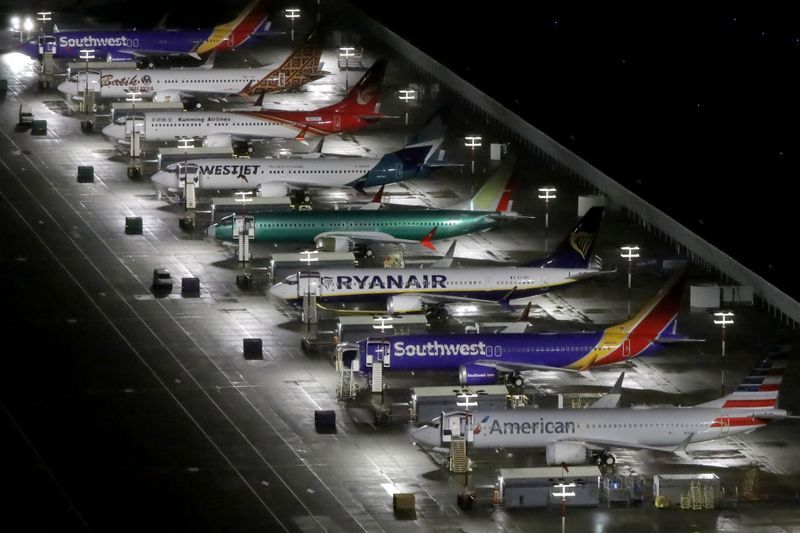
MILAN (Reuters) – Italian tax authorities believe that Fiat Chrysler Automobiles <FCAU> underestimated the value of its U.S. business by 5.1 billion euros following Fiat’s phased acquisition of Chrysler, according to a company filing and a source close to the matter.
The audit, which concerns transactions dating back to 2014, could result in FCA having to pay back taxes for $1.5 billion, the source added, confirming a report by Bloomberg.
FCA said in its third-quarter report that the tax authorities had issued to the company a final audit report in October this year “which, if confirmed in the final audit assessment, could result in a material proposed tax adjustment related to the October 12, 2014 merger of Fiat SpA into FCA NV.”
It said the issuance of a final audit report starts a 60-day negotiation period, which ends with the issuance of a final audit assessment expected to be received by the end of December 2019.
“The company believes that its tax position with respect to the merger is fully supported by both the facts and applicable tax law and will vigorously defend its position,” it said in the third-quarter report.
A spokesman for Italy’s tax agency declined to comment.
“At this time, we cannot predict whether any settlement may be reached or if no settlement is reached, the outcome of any litigation. As such, we are unable to reliably evaluate the likelihood that a loss will be incurred or estimate a range of possible loss,” Fiat said.
News of the tax probe comes at a delicate time for Fiat Chrysler, which is finalizing talks with PSA, the maker of Peugeot and Citroen, over a planned $50 billion merger to create the world’s fourth-largest automaker.
(Reporting by Silvia Aloisi in Milan; Editing by Anil D’Silva)

WASHINGTON (Reuters) – Southwest Airlines Co <LUV> said Monday it will complete inspections on 38 737 airplanes it acquired from foreign air carriers by Jan. 31 that may not meet all U.S. aviation safety requirements.
The planes are part of 88 pre-owned Boeing <BA> 737 aircraft Southwest bought between 2013 and 2017 from 16 foreign carriers. The speedier checks come after inspections of 39 used planes turned up previously undisclosed repairs and incorrectly completed fixes. Southwest used multiple contractors to conduct the reviews of the planes’ maintenance records when they bought the planes.
“We have a plan in place to inspect the 47 remaining aircraft, nine of which are currently in heavy checks, no later than January 31, 2020 – five months earlier than the original FAA accepted completion date of July 1,” Southwest said in a statement on Monday.
Southwest said its inspections to date “did not stem from any suspected safety concerns with the aircraft.” It added its “continuous assessment of the ongoing inspections has revealed nothing to warrant the expedited timeline” but will meet it nevertheless.
In 2018, Southwest agreed to conduct a complete physical inspection on each of these pre-owned aircraft over a two-year period after a Federal Aviation Administration (FAA) safety inspector in May 2018 discovered discrepancies in records for some of 88 aircraft.
Since then, Southwest said it has completed the nose-to-tail inspection of 41 aircraft without any findings that suggested an “adverse impact on continued safe operation.”
An Oct. 24 memo from H. Clayton Foushee, director of the FAA Audit and Evaluation Office, made public on Monday said the Southwest inspections turned up at least 30 previously unknown repairs and 42 major repairs that were found “not to meet FAA airworthiness requirements.” Some required “immediate corrective action to bring the aircraft back into compliance.”
The memo added “the data collected to date would indicate that a majority of” the planes to be inspected do not meet FAA airworthiness requirements.
The U.S. Senate Commerce Committee noted on Monday that the 2018 discovery prompted a full records review by Southwest Airlines of all 88 aircraft that found 360 major repairs previously unknown to the airline because they were not disclosed in the contractors’ initial review.
Foushee’s memo said Southwest grounded 34 planes in November 2018 for inspections. The committee said as a result some planes were grounded “for immediate maintenance to bring them into regulatory compliance as a result of these newly discovered prior major repairs.”
The FAA then sent an Oct. 29 letter to Southwest seeking additional information about the uninspected planes and questioned whether they suffered specific damage items. It also raised concerns about Southwest’s “slow pace in completing the evaluation of aircraft.”
Senate Commerce Committee Chairman Roger Wicker said in an Oct. 30 letter to the FAA that its concerns about Southwest’s used planes correspond “to concerns that have been brought to my attention by whistleblowers as part of my investigation into aviation safety.”
The committee said the FAA allowed Southwest to continue to operate these aircraft and as a result “Southwest Airlines appears to have operated aircraft in unknown airworthiness conditions for thousands of flights.”
The FAA said Monday that after receiving Southwest’s response it determined the airline has “met the requirements for immediate inspection and risk assessments on these aircraft.”
The FAA added it “is requiring more frequent updates on the progress of completing all the requirements.”
(Reporting by David Shepardson; additional reporting by Tracy Rucinski in Chicago; editing by Jonathan Oatis)
